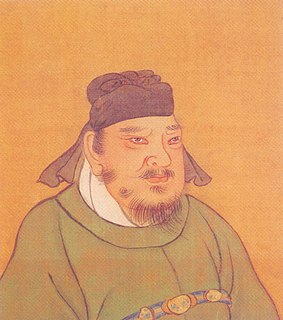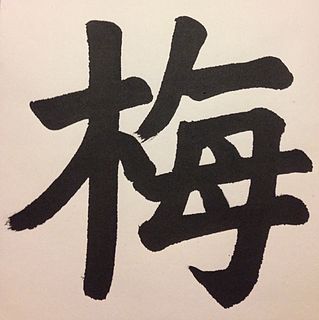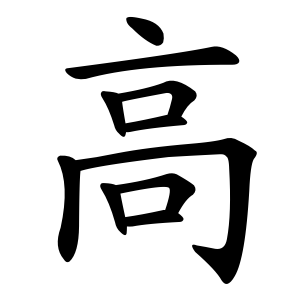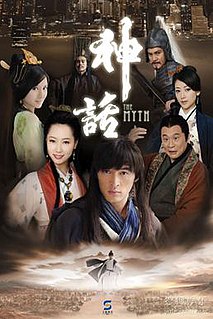
Xiang Yu, born Xiang Ji, was the Hegemon-King of Western Chu during the Chu–Han Contention period of China. A noble of the Chu state, Xiang Yu rebelled against the Qin dynasty and became a prominent warlord. He was granted the title of "Duke of Lu" (魯公) by King Huai II of the restoring Chu state in 208 BC. The following year, he led the Chu forces to victory at the Battle of Julu against the Qin armies led by Zhang Han. After the fall of Qin, Xiang Yu was enthroned as the "Hegemon-King of Western Chu" (西楚霸王) and ruled a vast area covering modern-day central and eastern China, with Pengcheng as his capital. He engaged Liu Bang, the founding emperor of the Han dynasty, in a long struggle for power, known as the Chu–Han Contention, which concluded with his eventual defeat at the Battle of Gaixia and his suicide. Xiang Yu is depicted in the Wu Shuang Pu by Jin Guliang.
Zhang Han was a military general of the Qin dynasty. When uprisings erupted throughout China during the reign of Qin Er Shi, Zhang Han led the Qin armies and successfully quelled several of these rebel forces. In 207 BC, Zhang Han was defeated by Xiang Yu of Chu at the Battle of Julu, after which he surrendered along with his 200,000 troops. He was conferred the title "King of Yong" (雍王) by Xiang Yu and given part of the lands in Guanzhong as his fief when Xiang split the former Qin Empire into the Eighteen Kingdoms after the fall of the Qin dynasty. Zhang Han's territory was conquered by Liu Bang in 206 BC, and he committed suicide a year later.
Liu Xiang or Liuxiang may refer to:

Gao Xiang was a Qing Chinese painter, and one of the Eight Eccentrics of Yangzhou. He was born in Ganquan in Yangzhou prefecture.

Fan Kuai was a military general of the early Western Han dynasty. He was a prominent figure of the Chu–Han Contention, a power struggle for supremacy over China between the Han dynasty's founder, Liu Bang, and his rival, Xiang Yu.
Gao Xiang was a military general of the state of Shu Han in the Three Kingdoms period of China.

Mei is a romanized spelling of a Chinese surname, transcribed in the Mandarin dialect. In Hong Kong and other Cantonese-speaking regions, the name may be transliterated as Mui or Moy. In Vietnam, this surname is written as Mai. In romanized Korean, it is spelled Mae. The name literally translates in English to the plum fruit. The progenitor of the Méi clan, Méi Bo, originated from near a mountain in ancient China that was lined at its base with plum trees.
Events from the year 1688 in art.

Zhong is pinyin transliteration of several Chinese surnames, including Zhōng (鍾/钟), Zhòng (种),mistakenly for Chóng, cf. zh:种姓 and Zhòng (仲). These are also transliterated as Chung, Cheong or Choong, Tjung or Tjoeng, and Chiong.

Gao is an East Asian surname of Chinese origin that can be literally translated as "high" or "tall". There are approximately 16 million living people with this surname. Some places, such as Taiwan, usually romanise this family name into Kao. In Hong Kong, it is romanized to Ko. In Macau, it is romanized to Kou. In English, it is romanized to Kauh. In 2019 it was the 19th most common surname in Mainland China.
Peng Yue, courtesy name Zhong, was a Chinese military general and politician in the late Qin dynasty and early Western Han dynasty. He was involved in the Chu–Han Contention – a power struggle between the Han dynasty's founder, Liu Bang, and his rival, Xiang Yu – as an ally of Liu Bang. In recognition of his contributions, Liu Bang granted Peng Yue the title "King of Liang" (梁王) after the Han dynasty was established.

Three Kingdoms is a 2010 Chinese television series based on the events in the late Eastern Han dynasty and the Three Kingdoms period. The plot is adapted from the 14th century historical novel Romance of the Three Kingdoms and other stories about the Three Kingdoms period. Directed by Gao Xixi, the series had a budget of over 160 million RMB and took five years of pre-production work. Shooting of the series commenced in October 2008, and it was released in China in May 2010.

Consort Yu, also known as "Yu the Beauty", was the wife of the warlord Xiang Yu, who competed with Liu Bang, the founder of the Han dynasty, for supremacy over China in the Chu–Han Contention (206–202 BC).

The Myth is a 2010 Chinese television series based on the 2005 Hong Kong film of the same title. Jackie Chan, who starred in the original film, was credited as the producer for the series, while Stanley Tong, who directed the film, was the creative director for the series. The series was first aired on CCTV-8 in China in January 2010.
Sima Xin was a military general of the Qin dynasty. He surrendered to Xiang Yu after the Battle of Julu in 207 BC. In 206 BC, following the collapse of the Qin dynasty, he was conferred the title of "King of Sai" by Xiang Yu and given part of the lands in Guanzhong as his fief when the latter split the former Qin Empire into the Eighteen Kingdoms.
Dong Yi was a military general of the Qin dynasty. He surrendered to Xiang Yu after the Battle of Julu in 207 BC. In 206 BC, following the collapse of the Qin dynasty, he was conferred the title of "King of Di" (翟王) by Xiang Yu and given part of the lands in Guanzhong as his fief when the latter split the former Qin Empire into the Eighteen Kingdoms.

King's War, also known as Legend of Chu and Han, is a Chinese television series based on the events in the Chu–Han Contention, an interregnum between the fall of the Qin dynasty and the founding of the Han dynasty. It started airing on Anhui TV, Zhejiang TV, Jiangxi TV and Tianjin TV on 28 December 2012.
Gao You was a Chinese historian, philosopher, and politician during the Eastern Han dynasty under its last emperor and the warlord Cao Cao.
Xiàng is a Chinese surname. It is listed 125th in the Song dynasty classic text Hundred Family Surnames.









